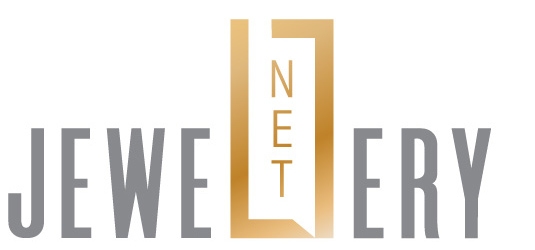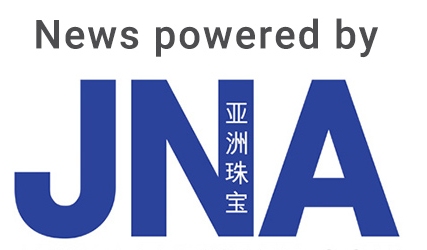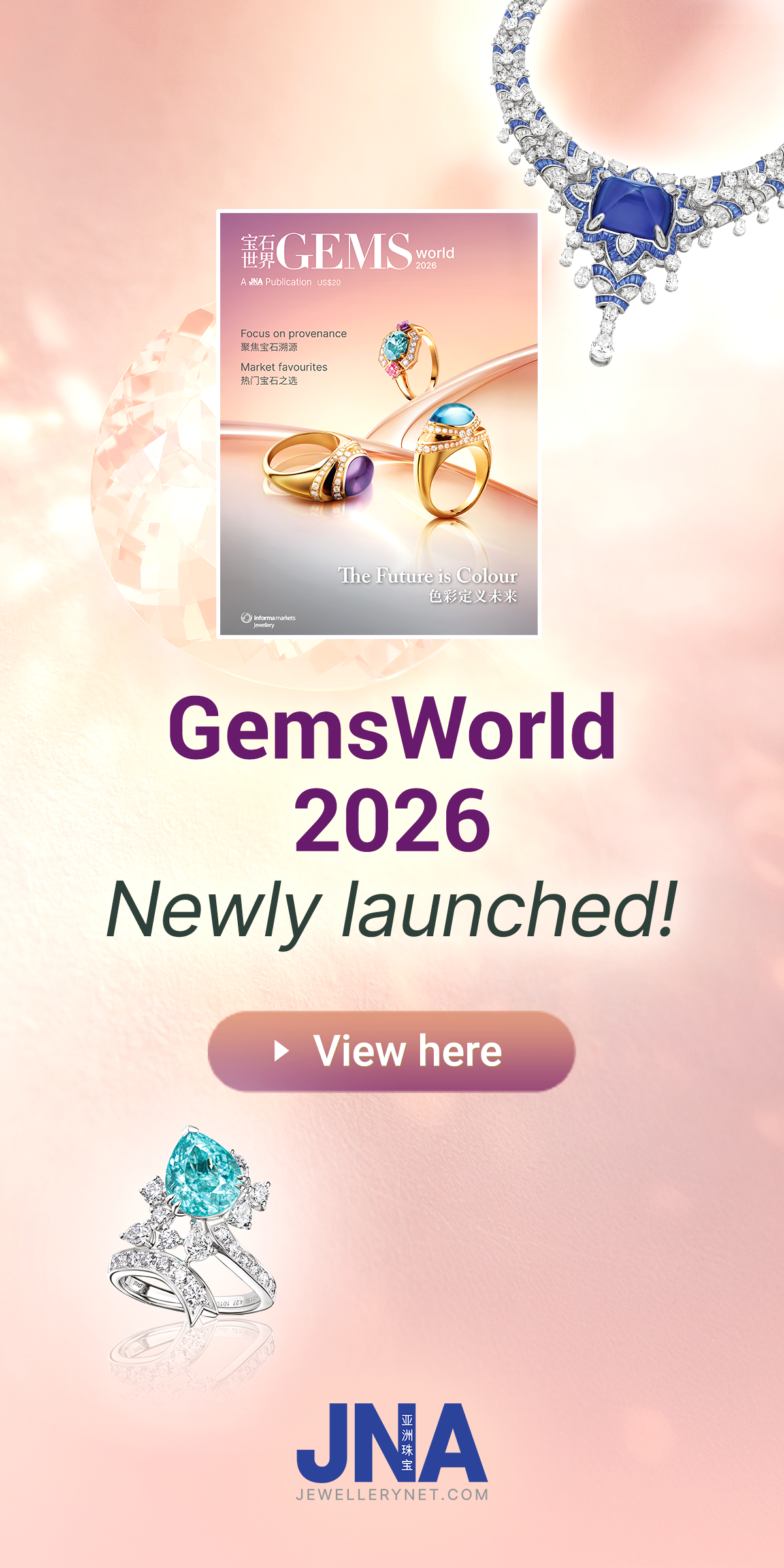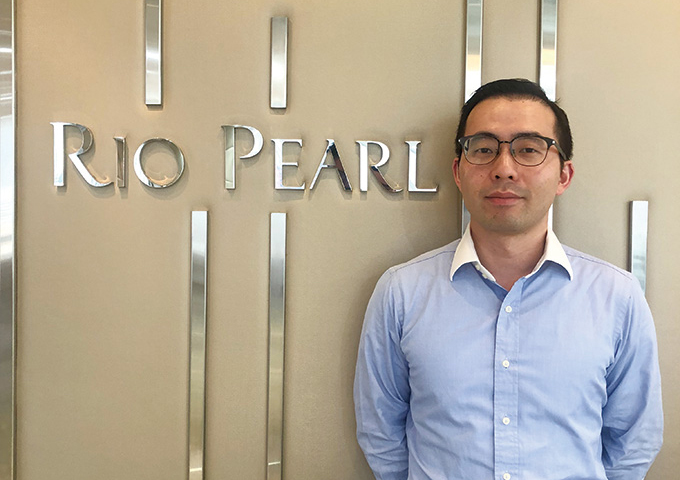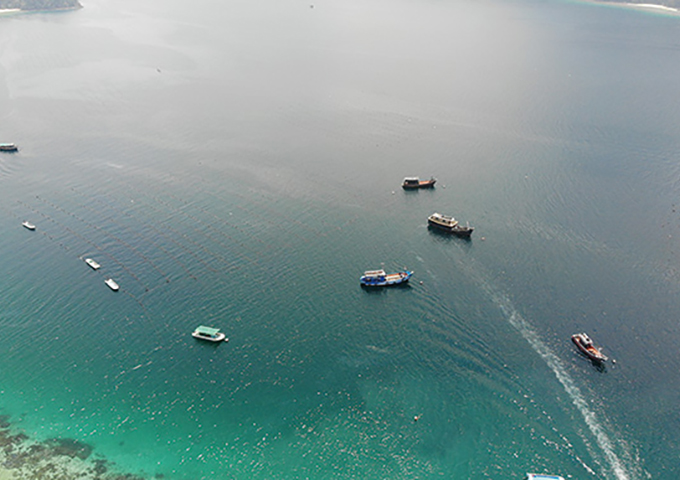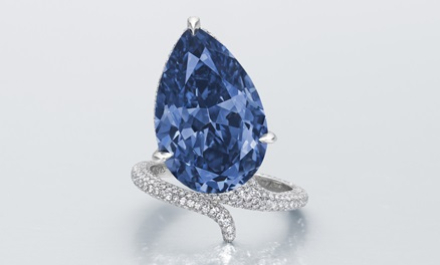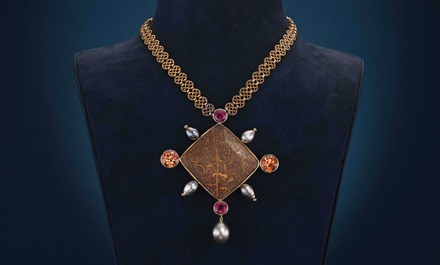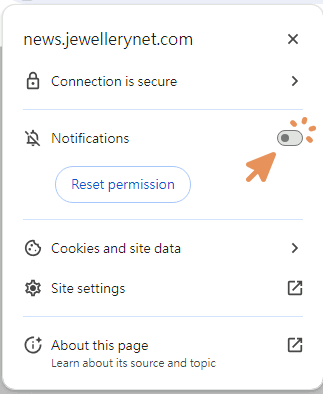Hong Kong-based Rio Pearl has successfully transitioned from pearl wholesaler to producer under the helm of company director Jonathan Cheng. Relying on the reputation and trust that Rio Pearl has built over the years, he continues to introduce dynamic changes to adapt to modern challenges.
Jonathan Cheng is taking Rio Pearl to greater heights, thanks to his enterprising mindset. He sat down with Pearl Report to talk about his business philosophies
and the new direction that the company is taking.
Why did you join the family business instead of pursuing a different career path?
I've always wanted to build a career in finance; that was my dream when I arrived in Hong Kong a decade ago. Working in equities at an investment bank is fast-paced and exciting. Having peers I can communicate and hang out with every day is completely different from running your own business where you feel alone sometimes. I joined the family business mainly because I wanted to help my parents and ensure that they are in a stable position.
What changes did you introduce in the company?
Entering a new industry requires understanding all aspects of the business. It's hard to catch up with trends while you are learning since you tend to resist making too many changes. The wholesale jewellery market is evolving and as a manufacturer, it can be difficult to adapt. Pearls usually comprise under 10 percent of a typical retailer's products. As a pearl jewellery manufacturer, it can be challenging to sustain factory orders at times, especially in a slow market environment. It's hard to say which things were done differently under my watch. But we have become more open-minded. We adjust tactics and come up with new ideas when something isn't working. There's this culture of fixing things immediately. There is a big difference between being indecisive and constantly making changes to ensure a project's successful execution.
What were some of the toughest moments during the company's transition?
Transitions are challenging for any company. Rio Pearl was a wholesaler and becoming a pearl producer and auction organiser was not easy. We rebuilt departments to meet the challenge of sorting 200,000 to 300,000 pearls each quarter. We hired five times more pearl sorters, which required trainings in a short period of time. We were still in the process of learning during the first few auctions. It wasn't until after our fourth auction that we were able to make improvements. I constantly touch base with industry experts to make sure that I meet their expectations. Their feedback is extremely important.
Who is your role model?
My father is passionate and dedicated, and after working with him for a few years, my respect for him has grown stronger. He grew up in poverty. He was a tailor's apprentice in his teens and after saving enough money, he opened his first business selling electronic watches. He worked his way up from a retailer to wholesaler, and producer of South Sea pearls. He has a huge heart. Our staff absolutely adores and loves him, and many of them have worked for him for over 30 years. He is 71 years old and works harder than me.
What is next for Rio Pearl?
We have increased our pearl farm production to stable levels. Now, we want to further improve the harvest, including the colour of our golden South Sea pearls. We have hired specialists at our farms to help with this. We will also focus more on research and potentially producing a more competitive product.
I hope the industry can also find ways to market pearls to the younger generation. I would love to work with other producers and associations to carry out initiatives to better advertise pearls to end-consumers and educate them about pearls as a luxurious jewellery choice.
